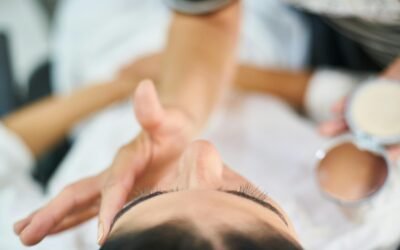If you’ve been on your acne journey for what feels like forever, I completely understand how frustrating it can be. You might have tried countless skincare products, adjusted your diet, and even made lifestyle changes, yet those breakouts persist. Before you feel like giving up, let’s take a closer look at five everyday things that might be making your acne worse, without you even realising it. The good news? These are all simple tweaks that can get you on the path to clearer skin.
1. Using the Wrong Skincare Products
This is one of the biggest reasons people struggle to see improvements. You could be eating all the right foods, exercising regularly, and staying hydrated, but still facing stubborn breakouts. Why? Because the skincare products you’re using might be working against you rather than for you.
Many acne-targeted skincare products contain strong active ingredients designed to dry out blemishes and kill acne-causing bacteria. While this might seem like a good thing, overuse of these products can lead to a compromised skin barrier, resulting in irritation, sensitivity, and, unfortunately, more breakouts.
Common Skincare Mistake That Worsens Acne:
- Over-exfoliating & over-cleansing: Using strong acids (like AHAs, BHAs) or physical scrubs, or harsh, stripping cleansers too often can strip your skin’s natural protective layer, which can trigger inflammation and slow down healing.
- Using too many products and actives: There are a lot of things recommended to help acne, and a lot of us end up buying all of them at one time to help our skin. But having salicylic acid, retinol, benzoyl peroxide, vitamin C and more, might be too much for your skin, especially if your barrier is already broken.
How to Fix It:
Instead of bombarding your skin with loads of different, strong products, focus on repairing your skin barrier with a simple, but effective routine. I’d recommend speaking with a skincare professional to get recommendations that are right for your skin.
2. Not Getting Enough Protein at Breakfast
Breakfast really is the most important meal of the day, and what you do (or don’t) eat for breakfast every day could have an effect on your skin. A lot of people either skip breakfast altogether or opt for something high in sugar and carbohydrates, which can affect blood sugar levels and hormones, two major triggers of breakouts and acne.
Simple Fix:
Prioritise protein-rich breakfasts to keep blood sugar stable and support skin health. Some quick options include:
- Greek yoghurt with nuts and seeds
- Scrambled eggs with avocado on toast
- A smoothie with some added nut butters, fruit, veg and protein powder
Adding protein to your breakfast helps regulate hormones, support skin repair, and prevent breakouts. Plus, you’ll feel fuller for longer, reducing cravings for sugary snacks later in the day.
3. Overly Restrictive Diets
Have you ever Googled “best diet for acne” and found a long list of foods to avoid? While diet does play a role in skin health, cutting out entire food groups can often do more harm than good.
Why Restrictive can do more harm than good
- Nutrient deficiencies – eliminating foods like dairy, gluten, eggs, and soy without proper substitutes can lead to deficiencies in essential vitamins and minerals (like zinc, b vitamins vitamin A, and omega-3s) that are crucial for skin healing.
- Increased stress and anxiety – one of the biggest things I see in clients is that they’ve become fearful of food. They don’t want to eat certain things, or go out for meals because they’re stressed it’s going to cause a skin flare-up. Sometimes, it’s not even the food that’s causing the issue, it’s the stress itself that can trigger breakouts.
- Gut health issues – a diverse diet is key for gut health, and since gut health and skin health are closely linked. Cutting out too many foods may reduce the diversity gut bacteria, which could affect your skin. It may also reduce your intake of nutrients and prebiotics that fuel gut health.
another simple fix:
Instead of focusing on what to remove, shift your mindset to what to add. Prioritise whole foods, plenty of fibre, and anti-inflammatory nutrients before eliminating foods unnecessarily. If you suspect a food sensitivity, work with a professional rather to make sure your diet is still balanced with all the nutrients you need, if you do have to remove something.
4. Digestive Issues
Your gut and skin are connected in more ways than you might realise. If your digestion isn’t functioning properly, your skin may not be getting the nutrients it needs to heal.
How Gut Health Affects Your Skin:
- Nutrient absorption – if your gut isn’t breaking down and absorbing nutrients properly, your skin won’t get the vitamins and minerals it needs to stay healthy.
- Inflammation – an imbalanced gut microbiome can send inflammatory signals throughout the body, leading to acne flares and slow wound healing.
- Detoxification issues – your liver and digestive system help detox excess hormones and toxins. If they aren’t functioning well, hormones can recirculate and build up in your system, which might show up as breakouts.
Fix Your Gut, Fix Your Skin:
- Increase fibre intake – fibre promotes a healthy balance of gut bacteria. Think vegetables, fruits, whole grains, and legumes.
- Support digestion – when you’re eating a meal, we want to be relaxed and it ‘rest & digest mode’. Turn your phone onto airplane mode, minimise distractions and just sit and eat your food. This helps massively with digestive function for nutrient absorption.
- Focus on whole foods – you know I don’t like focusing on removing foods. But including more whole foods in your diet will naturally decrease your intake of ultra-processed foods, which can contain things like emulsifiers that aren’t great for gut health.
If your digestive issues are severe or ongoing, it’s worth mentioning to your doctor and/or speaking with a nutritionist (like me!) to determine if you have food intolerances, dysbiosis (imbalanced gut bacteria), or other underlying issues.
5. Lack of Sleep
Your skin does most of its repair work while you sleep, so if you’re not getting enough rest, you’re slowing down your skin’s natural healing process.
How Sleep Deprivation Affects Acne:
- Increases stress hormones – lack of sleep is a form of stress to the body. Which unfortunately, means cortisol levels may rise when you’re sleep-deprived, leading to inflammation and breakouts.
- Increases sugar cravings – poor sleep often leads to cravings for high-sugar, processed foods, which aren’t great for skin health and healing.
Tips for Better Sleep:
- Stick to a consistent sleep schedule (aim for 7-9 hours per night).
- Reduce screen time before bed to lower blue light exposure.
- Spend time outside in the day – natural sunlight helps to regulate our sleep wake cycle
- Avoid watching (or reading) anything a bit stressful before bed, like the news!
Your acne can clear
By making small adjustments to your skincare routine, diet, gut health, and lifestyle, you can help set the stage for clearer, healthier skin. It might take time, but when you’re consistent with all of these basics, I promise you it can make such a difference over months or years.
A lot of my clients have been in a similar position, where they feel like they’ve tried everything and not seen the skin results they deserve. But when we’ve worked together and done some digging, we’ve managed to find the things that were holding them back from clear skin. You can see their clear skin results here. It is possible, even if it feels impossible right now.
Remember, acne is a journey, not a quick fix. Be patient and kind to yourself, and celebrate progress along the way – even if it’s small progress.
If you need more guidance, don’t hesitate to reach out.





0 Comments